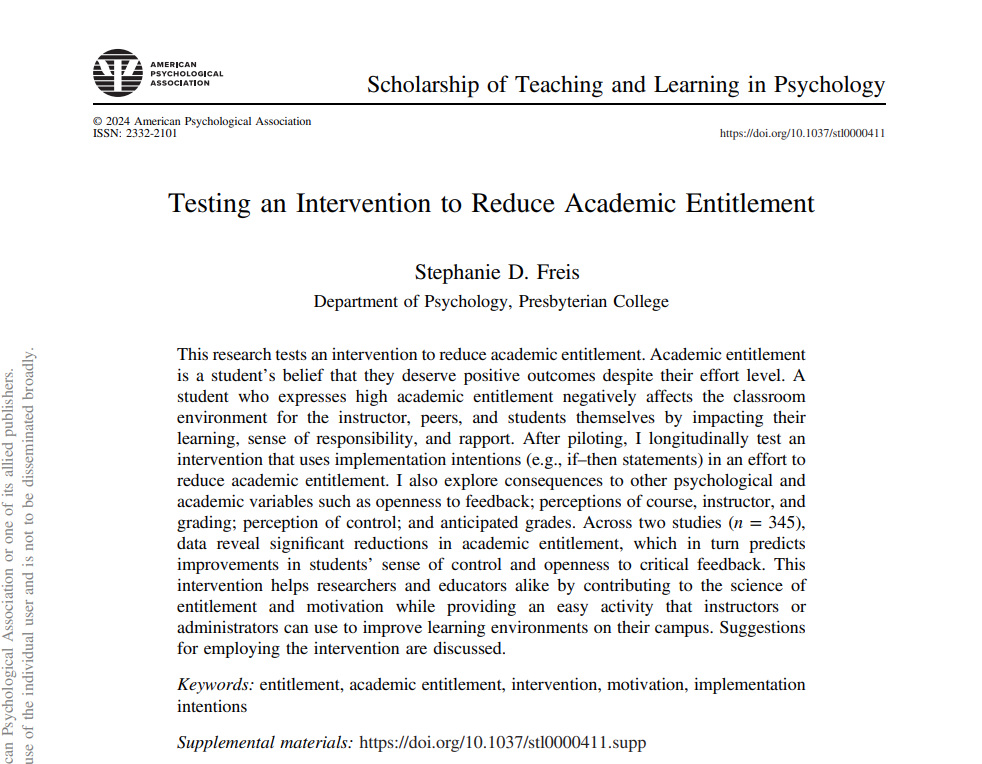How to Reduce Student Entitlement
Dealing with student entitlement is one of the toughest challenges in modern education. Students often expect good outcomes (“I deserved an A!”) regardless of their effort, and I’m very impressed with a new, data-backed intervention to combat this!
This compelling research article by Stephanie Freis, PhD offers a simple yet effective solution to reduce student entitlement. This intervention not only boosts student ratings of teaching, class experience, and grading fairness but also decreases negative reactions to critical feedback. It shifts the locus of control from professors to students, fostering a more responsible and engaged learning environment.
The full intervention, shared openly in the Word doc linked below, can be administered online. It guides students through exercises to set implementation intentions, using materials like gender-matched testimonials and real examples of behaviors contributing to entitlement, all created by college students themselves. This combination of personal relevance and goal-setting appears to make it particularly effective.
This study’s rigorous design, including a pre-post design with a control group, and presentation, including open materials for replication and practical application, make it a great model for excellent applied research, regardless of field.
Check out the full research article and also read this Word doc with the full intervention materials starting on page 5.

| Previous Post: | ChatGPT Can Write Undergrad-Level Essays with Accurate Citations |
| Next Post: | How to Survive the AI Revolution in HR |